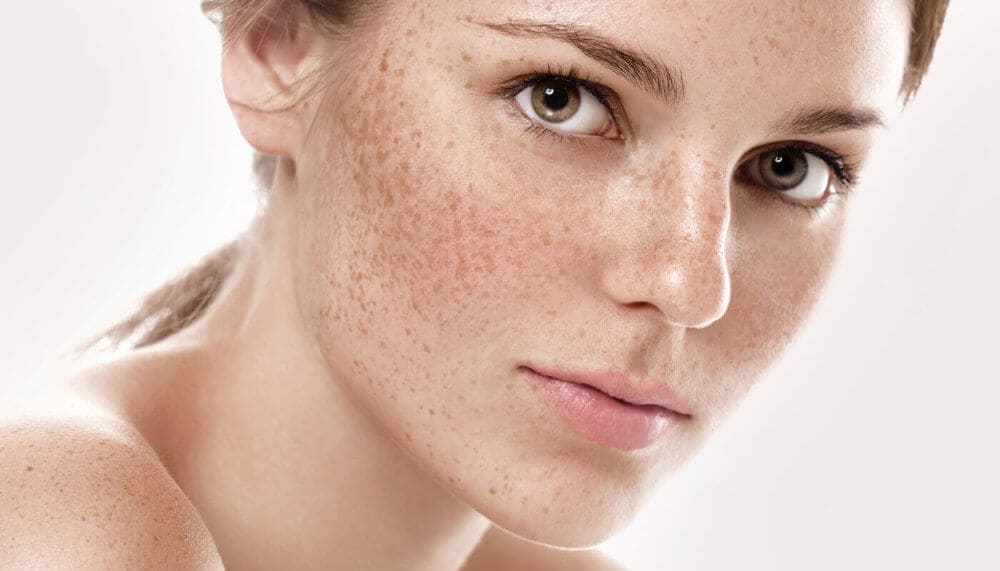How to get rid of Dark Spots?
Visit a healthcare provider if you see any change in the skin to check your skin condition. However, once you've ruled out any extreme possibilities, your next question would be how to get rid of this.
Dark spots can be treated in many ways. They can occur due to sun damage, acne scars, or melasma. Treatments are available that reduce dark spots on the skin. You can reduce their appearance by using topical creams, though there are risks associated with each of these treatment options.
There are a variety of skin whitening remedies and products available, but not all of them are equally effective. You can order your compounded topical cream or medication from Allaymeds if available products are not helpful or you are allergic to them.
How to identify dark spots?
A black or dark spot can be any sort of hyperpigmentation on the skin. They don't fade or heal like pimples or sunburns, and you'll notice they stand out significantly from the surrounding skin. In hyperpigmentation, skin overproduces melanin, the pigment that gives skin its color.
Depending on the type of dark spot you have, you may have different symptoms.
Postinflammatory hyperpigmentation occurs after an injury. As the wound heals, you may notice that the area begins to develop dark brown, tan, or even blue-gray patches.
It is important to talk to your doctor or skin specialist if you see any changes in your skin or dark spots.
What parts of the body suffer from dark spots?
Dark spots are common on the back of the hand, face, back, or shoulders. Even while dark spots are most often seen on the face, they might begin to appear anywhere on your body that is usually exposed to the sun.

Why do dark spots appear?
In some cases, dark spots indicate skin cancer. Skin color changes to blue, brown, black spots, or red patches if you have skin cancer. Always use SPF in sun-exposed areas.
What are the causes of dark spots?
Exposure to sunlight :- UV light is the most common cause of dark spots. The skin's layers are susceptible to damage from harmful UV radiation. To protect you, your body produces melanin, but over time, things may start to go awry.
Due to age :- Dark spots are more prevalent in exposed skin after the age of 40 due to conditions influencing the production and distribution of melanin.
Use of chemical agents :- Certain chemicals such as deodorants or oils may cause hyperpigmentation.
Hormonal changes :- Melasma and other conditions can be caused, in particular, by the hormonal changes that can result during pregnancy.
Inflammation :- As a result of the inflammation they cause, certain cosmetic treatments may darken the skin.
Medications :- Anti-inflammatory medications and hormonal birth control pills, for example, can also increase melanin production and cause dark spots.
Allergies :- A reaction to allergies may cause hives or rashes of eczema.
Certain medical conditions :- Skin discoloration is caused by medical conditions such as rosacea and psoriasis.
Skin cancer :- Skin cancer also changes the color of the skin.
Why are my dark spots increasing?
The process of treating dark spots for most people actually makes them darker at first as your medication is probably promoting the growth of new skin cells. As a result, your black spots worsen temporarily as the hyperpigmented cells are pushed to the skin's surface. Dark spots caused by untreated conditions or medications will likely continue to spread until they are addressed.
How long do dark spots last?
Many options include topical creams and medication to treat dark spots. If the discoloration is more resistant, a dermatologist may suggest an in-office treatment like a chemical peel or laser therapy.

How are dark spots diagnosed?
You must seek the advice of an expert medical professional to diagnose black spots. Your doctor will initially examine dark spots on your skin and inquire about any recent changes. They will ask about your medical history and may order some tests to determine the cause of spots such as blood tests or biopsy. A skin biopsy is done to check the presence of abnormal cells in a small sample of the affected skin under a microscope.
They may also ask which medication you are taking and how much sun exposure you are getting. A dermatologist may suggest over-the-counter or prescription topical treatments to reduce the appearance of skin discoloration if you decide to seek treatment for cosmetic reasons.
Always ask your doctor before trying any treatment or home remedies for dark spots.
In visual skin inspection, your doctor will examine your skin closely. They will take note of the color and shape of the spots, whether they are symmetrical or asymmetrical. Symmetrical spots indicate melasma and asymmetrical signifies skin cancer.
Another crucial factor is size. Smaller spots are probably aging spots, however larger patches over a quarter inch may be a sign of cancer.
How to treat dark spots?
After identifying the cause of the dark spots, chemical exfoliators, such as azelaic acid can help in removing the top layer of skin and encourage the growth of new, pigment-free skin cells. Melanin production in your skin can be slowed down by using creams that prevent melanin. Treatments such as laser therapy can encourage the growth of new cells.
How to prevent dark spots from occurring?
Begin by avoiding sun exposure. Use at least SPF 30 and cover your skin when you go outside. Keeping your skin healthy may also help. Dark spots caused by UV damage can be prevented and treated with the prescription retinoid tretinoin. Aloe vera can work as an anti-inflammatory and moisturizer for dry skin. Vitamin C gives you a smooth and lightened complexion.
